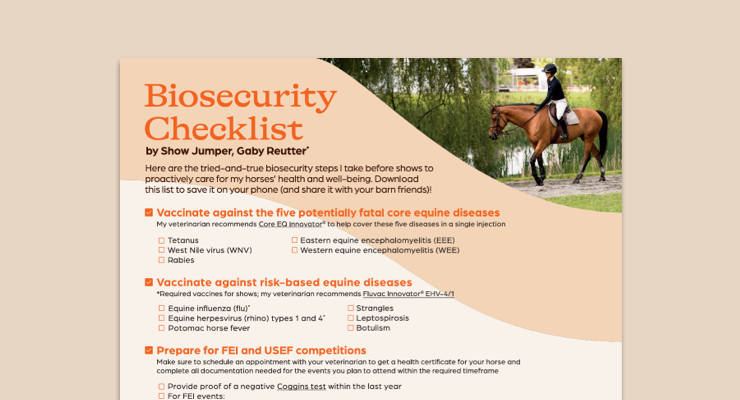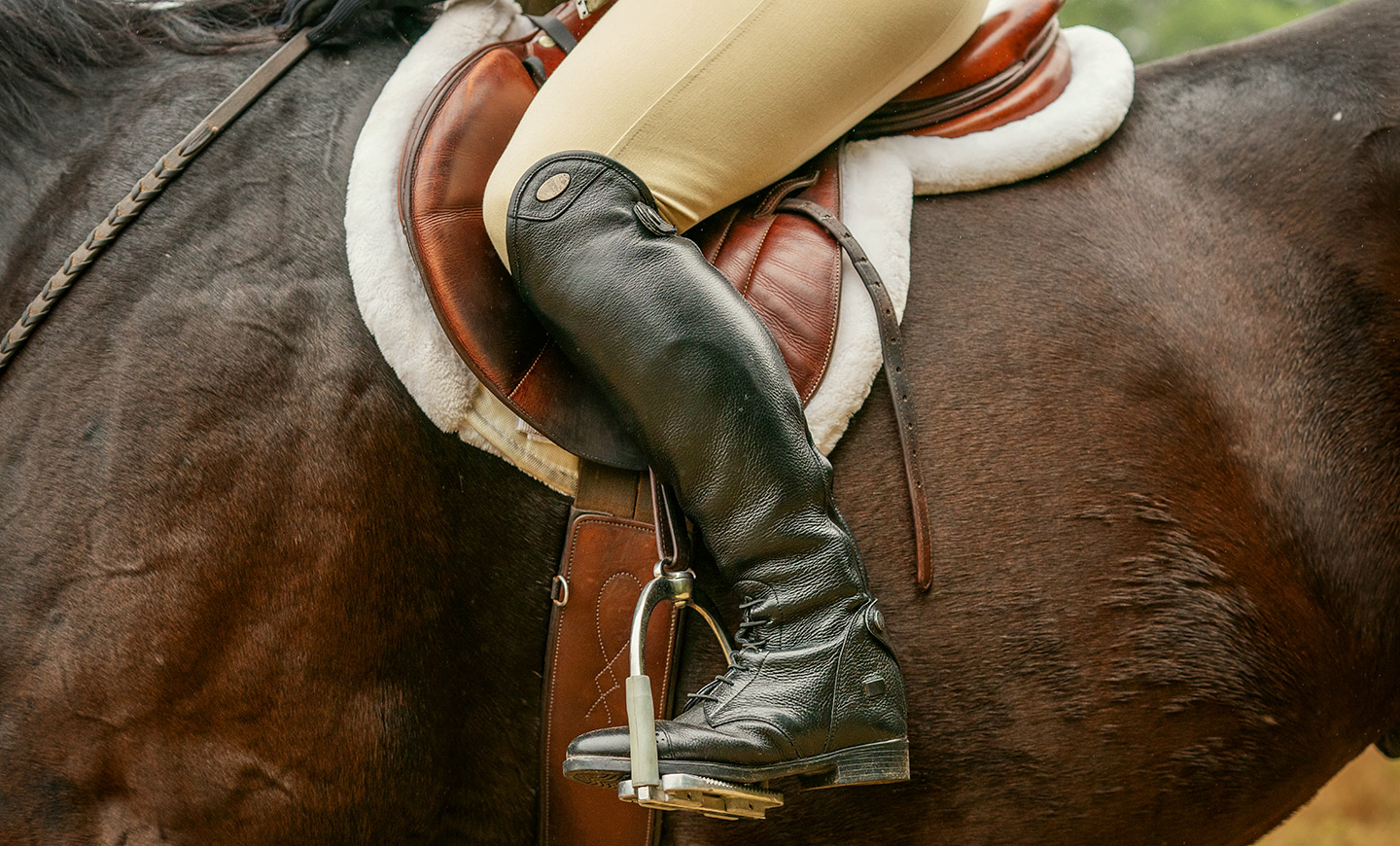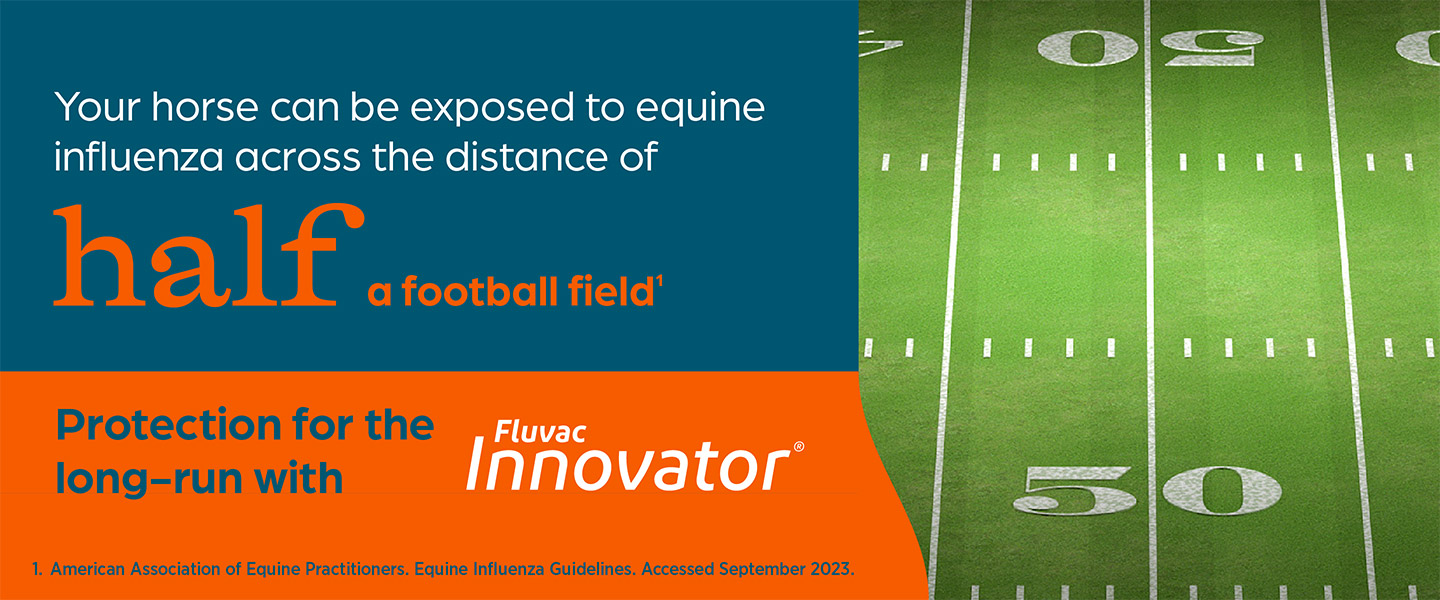
Show Jumper, Gaby Reutter’s Travel Checklist
In the face of an outbreak
Shut down a horse show or training barn for a week? Wait, what?!
If you suspect any infectious diseases at your farm, contact your veterinarian immediately. They will be able to run appropriate tests, render treatment and make recommendations about isolation. Veterinarians often refer to the AAEP’s extensive and resourceful biosecurity guidelines. Everything you need to know about equine biosecurity is included here. Many governing bodies of horse events, such as the FEI (Fédération Equestre Internationale), USEF (United States Equestrian Federation), AQHA (American Quarter Horse Association) and HISA (Horseracing Integrity and Safety Authority), also offer informative guidelines on biosecurity.
Sometimes biosecurity measures get neglected. We underestimate the potential impact on our horses’ health, along with the economic impacts on owners and the industry. The necessary measures will continue to require leadership, time, education, routine preventive care and public awareness.
References
- American Association of Equine Practitioners. Equine influenza guidelines. DiseaseFactsheet_EquineInfluenza_FINAL-Cobranded.pdf (aaep.org). Accessed September 15, 2023.
- Zoetis Inc. Data on file. Study report no. 23EQRGBIO-01-01.
- Zoetis Inc. Data on file. Study report no. 671-08-004.R
- Zoetis Inc. Data on file. Study report no. 21EQRGBIO-01-02.
- Dilai, M, et al., Vet Microbiol, 2018 (v1.0). Serological investigation of racehorse vaccination against equine influenza in Morocco. Veterinary Microbiology. 223. 2018. 153-159.
- Zoetis Inc. Data on file. Study report no. 22EQRGBIO-01-01.
- Zoetis Inc. Data on file. Study report no. 18EQRGBIO-01-02.
All trademarks are the property of Zoetis Services LLC or a related company or a licensor unless otherwise noted. Stablelab is a registered trademark of Epona Biotech Limited, used under license.
© 2025 Zoetis Services LLC. All rights reserved. COR-00241R1
 Visit veterinary professionals site
Visit veterinary professionals site




